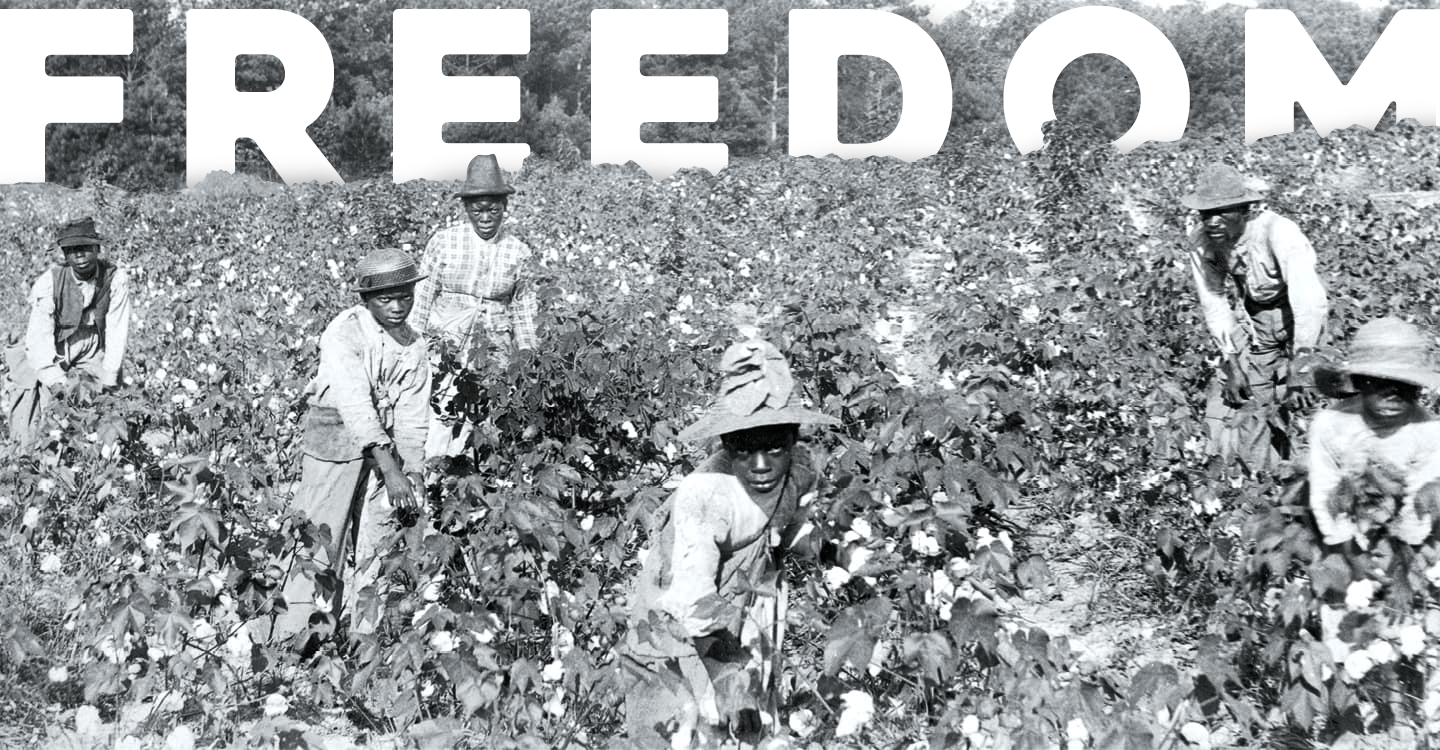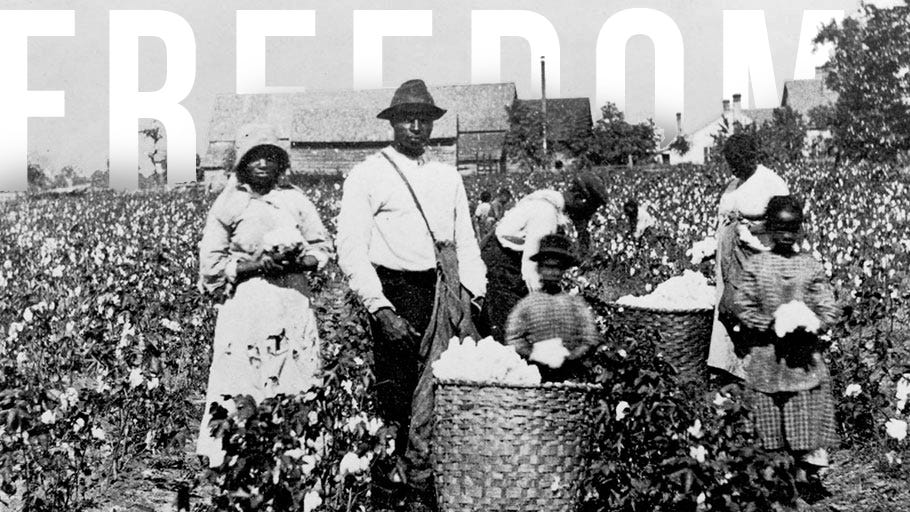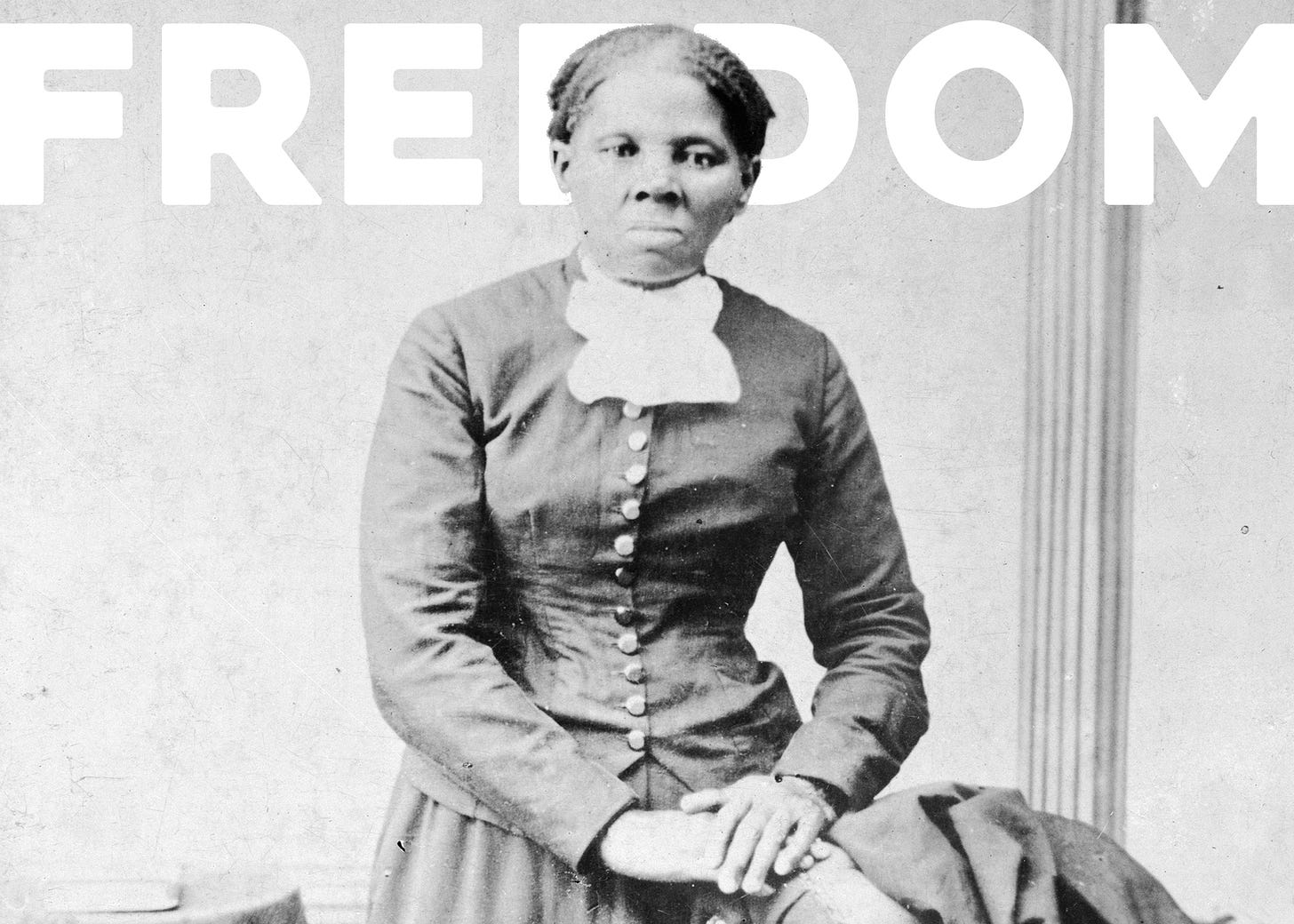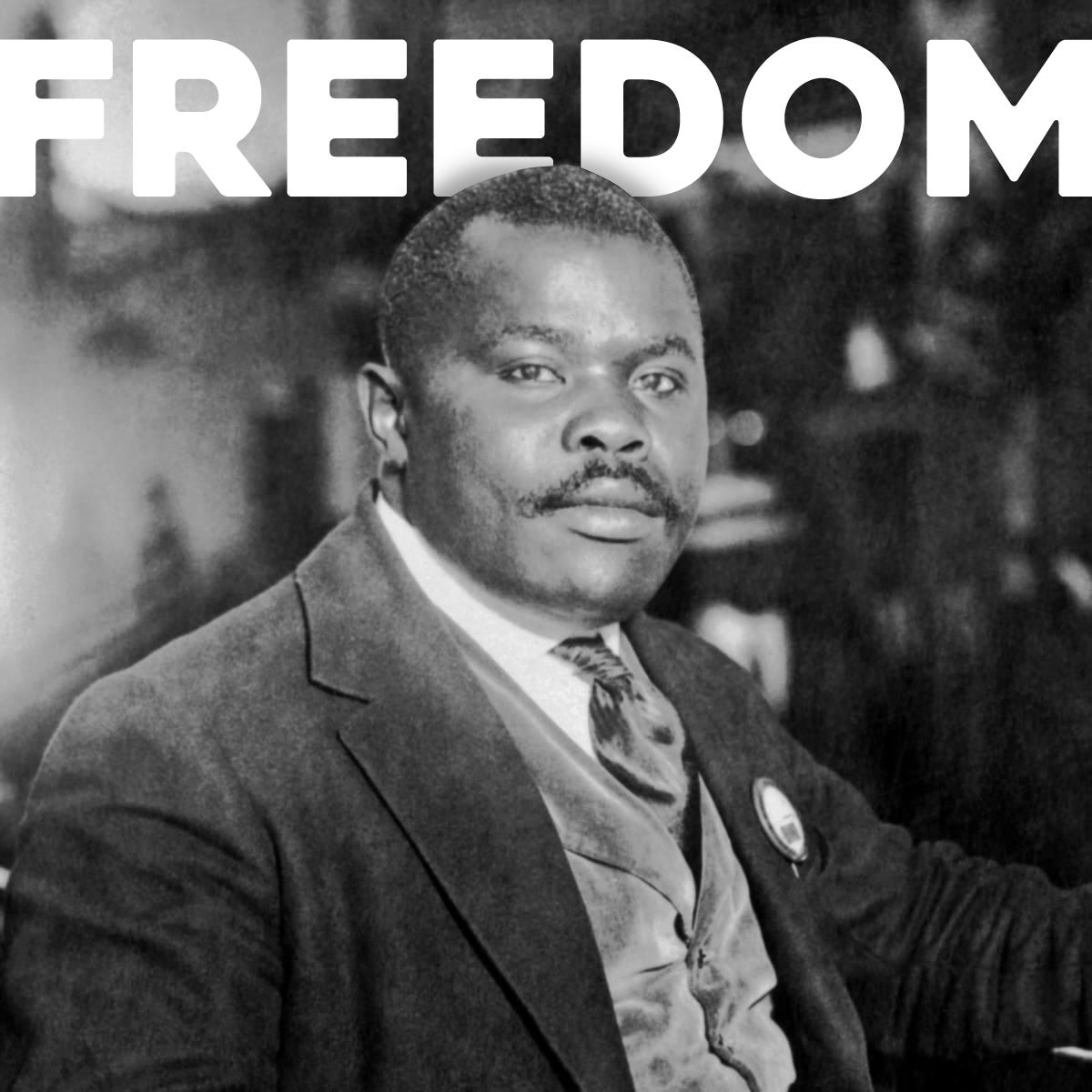I have no idea what that June 19th, 1865 day was like. But I can imagine…
A bright, hot, summer’s day, cloudless blue skies providing no cover from the scorching sun. Sweat collecting in beads on faces.
Then, the pitter patter of a snare drum, the screech of a fife whistle. On the horizon, a man in uniform appears on horseback, trotting roughshod through the neatly managed rows of tobacco.
Rearing to a stop in front of them, his visored cap too low for his eyes to be seen, the officer unrolls a sheet of parchment and begins shouting words that are hard to follow. Hard to grasp. At the end of his recitation, he pauses and summarizes:
“You are all now free”.
I have no idea what their reaction was, but I can imagine the first few minutes were full of confusion, disbelief, suspicion. Hadn’t there been a similar decree only a few years ago?
“Yes...”, he must have said to some affect. “...But this time is different. This time it’s for real.”
I imagine, when the message finally sank in, some folks fell to their knees, overcome with emotion. Perhaps a few danced with glee, thanking the officer profusely. But I suspect there were many who stood in silence, their faces expressionless.
The officer would wrongly assume the quiet ones were too simple to understand. But their silence was not a lack of understanding.
They stood silently contemplating what would come next, where they would go, what they would do with no land, tools or shelter, and how long it would be before other armed white men would arrive with alternative intentions.
Juneteenth - Freedom Day
Juneteenth is a holiday of many mixed feelings for me. Its history is a microcosm of our nation's. It memorializes a moment, two full years after supposed emancipation, when the last of the formerly enslaved peoples of this country were returned their stolen inalienable rights.
It would take another century before those rights would have any consistent enforcement (the voting rights act passed in 1965, exactly 100 years later) and to this day, descendants of those “freed” men and women still find themselves victims of systematic disenfranchisement in nearly every sector of society. In many ways we still await the full emancipation we are owed, not only as American citizens, but as human beings.
And so, like all of our national holidays, Juneteenth is cause for both celebration and critique.
Being that it is called "Freedom Day" it would befit us all to take some time on this, now nationally recognized holiday, to meditate on this idea of Freedom. It is an idea that has powered this country since its inception, yet it remains its most illusive ingredient. Scores of wars were fought in its name and yet, what does that name really mean?
Freedom?
Freedom to me is autonomy, the power and agency to act upon one's best interest. It is the state of being unencumbered in the pursuit of one's highest potential.
In our culture we have conflated the idea of Freedom with Independence. But they are not the same. Independence implies a lack of need for others. It is best exemplified by the American ideal of “rugged individualism” - a self reliance to the extreme. This attitude has created a society of isolated people with selfish ambitious, in competition with one another for scarce resources, with scarce empathy and common good. This is not freedom.
Freedom is not independence, it is inter-dependence. The truth is, we need each other to enjoy it. Because if there is any among us who are not free, none of us truly can be. Dr. King warned us that "a threat to injustice anywhere is a threat to justice everywhere". The same goes for freedom as well.
Perhaps there is no greater example of this than the life and work of one of the greatest Americans to ever live.
“I had crossed the line. I was free; but there was no one to welcome me to the land of freedom. I was a stranger in a strange land; and my home after all, was down in Maryland; because my father, my mother, my brothers, and sisters, and friends were there. But I was free, and they should be free."
-Harriet Tubman
”Scenes in the Life of Harriet Tubman” by Sarah Hopkins Bradford
Harriet Tubman’s freedom began not when she crossed some arbitrarily man-made state line, but when she committed herself to freeing others.
In short, Freedom is an act.
It is the continual process of freeing one’s self and others from all that constricts, prevents or limits us from achieving our fullest potentials. Learning, teaching, healing, growing, supporting, caring - all of these are acts of liberation. And none can be done independently.
In 2025, there are no longer plantations of cotton or tobacco worked by enslaved Africans. They have now become fields of tomatoes, corn and strawberries worked by non-documented immigrants. They have become prison labor yards and restaurant kitchens. Now slave plantations can be found in shelters, detention centers, construction sites, tent cities and shady motels. Now the enslaved speak languages from all over the world.
And above and beyond the forced labor, imprisonment, sex trafficking, addiction and other forms of physical slavery are the mental forms of trauma, self-hate, xenophobia, loneliness, ignorance and apathy that allow these systems of slavery to continue, denying us all of our full humanity.
"We are going to emancipate ourselves from mental slavery because whilst others might free the body, none but ourselves can free the mind."
-Marcus Garvey
“The Work That Has Been Done”, Marcus Garvey, Oct. 31 1937
This Juneteenth I hope we can all celebrate the freedoms we enjoy, and appreciate all that went into securing them. But I hope we also take on the responsibility that comes with freedom - and the continual fight to free ourselves and others from bondage and disenfranchisement, wherever it may occur.
Happy Juneteenth ya’ll. Stay Free.
Sincerely,
-Daniel






Interdependence all the way. Thank you for the poignant reminder.